Category Archives: Oral Health
Oral Disease: Top 3 Oral Diseases that could Impact Your Health
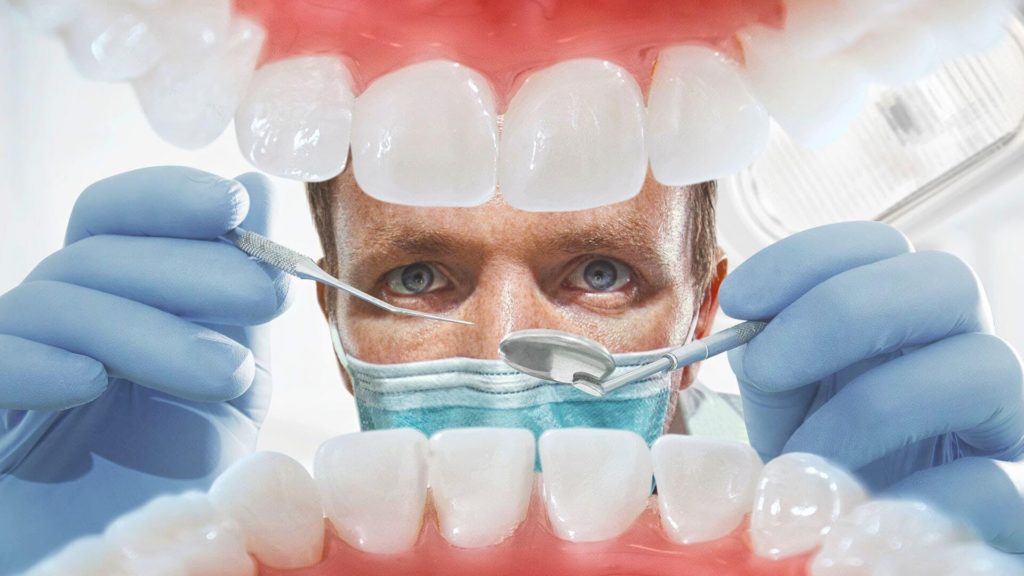
Headline: The top three oral diseases that could impact your health
When it comes to your mouth, it’s important to know what you’re up against in order to stay on top of your oral health and prevent future issues. According to the CDC, oral health includes the “teeth, gums, and the entire oral-facial system that allows us to smile, speak, and chew.” There are three common oral diseases that can greatly affect your oral health:
- Dental caries (cavities)
- Periodontitis
- Oral cancer
By knowing the causes and prevention methods for each of these three diseases, you are one step closer to avoiding these oral problems and increasing not only your oral health, but your overall wellbeing.
Related article: https://www.cdc.gov/oralhealth/conditions/index.html
Oral Disease: Dental Caries
Dental caries, also known as cavities or tooth decay, are the most common dental problem in both children and adults. Caries affect up to two thirds of adolescents, and 60-90% of school age children, according to statistics.
Specifically, dental caries are caused by numerous factors such as:
- Consuming an excess of sugar
- Not thoroughly cleaning the teeth
- Having a high number of bacteria/plaque in the mouth
These factors can all lead to tooth decay or holes in the surface of your teeth. Thankfully, dental caries are also easily preventable. By brushing twice a day with a fluoride toothpaste, using a fluoride-based mouthwash, frequently flossing, and implementing a reduction in sugar intake will make a huge difference in your oral health and will greatly reduce your risk of oral disease.
Oral Disease: Periodontitis
Periodontitis is a gum disease caused by the inflammation of the gums and deterioration of the soft tissue surrounding the bones that support your teeth. Similar to dental caries, poor oral hygiene and a high concentration of plaque leads to a higher risk of periodontitis. However, there are other factors that also increase one’s risk, such as diabetes, a weakened immune system, smoking tobacco, and obesity.
Regular dental checkups are a must in order to catch this oral disease early for treatment. If left untreated, periodontitis can make the gums inflamed and infected, leading to tooth extractions. So, make sure to keep up with your regular hygiene routine of brushing, flossing, and getting professional teeth cleanings to stay clear of this disease.
Oral Disease: Oral Cancer
Oral cancer is any type of cancer that forms in the mouth. It’s important to be diligent with your symptoms, and immediately let your doctor know if you are experiencing indicators such as: a sore that doesn’t heal, painful swallowing, a white or red patch in your mouth, or mouth pain. Like other types of cancers, oral cancer occurs when cells around the mouth mutate and form abnormal cells. It’s also important to catch this oral disease early on to increase the chances of ridding the cancer and improving your health.
Unlike dental caries and periodontitis, where frequent brushing and flossing will greatly decrease risk, there is no known prevention for oral cancer. However, according to Mayo Clinic, there are some steps to take to reduce your risk of developing this cancer, such as reducing alcohol and tobacco consumption.
To learn more about risks and prevention, please visit: https://www.mayoclinic.org/diseases-conditions/mouth-cancer/symptoms-causes/syc-20350997
Knowing how to prevent these three common oral diseases can make such a huge impact on the future of your teeth. Knowledge is power! Don’t forget to check back over our tips and prevention techniques to reach the best level of oral health.
GPS Dental Can Help
Dental professionals are true advocates of oral care. We are not only adamant about keeping teeth clean, but we are also concerned with your overall dental health. Checking for defects, abnormalities, and indications of severe issues in the bone, teeth, or gums are also at the forefront of our practice. Similarly, offering advice on how to properly care for teeth and correct certain habits is also a part of the patient education that we offer. Should you be looking for a dentist that is serious about oral care, contact our dental office to book your dental appointment.
Dr. Gary P. Skrobanek is a dental implant dentist and his experienced, friendly team at GPS Dental offer affordable family dentistry and gentle dental care in the San Antonio, TX area. Our Brooks City Base dentist office is conveniently located and offers early morning appointment times Monday through Friday to meet your needs. At GPS Dental, we provide most dental services, from family and general dentistry to dental implants, sleep apnea, TMJ / TMD Treatment, cosmetic dentistry and much more. We accept most dental insurance plans and offer affordable financial solutions for any budget. Call us at (210) 633-3477 to make an appointment.
April is Oral Cancer Awareness Month: A Good Time to Visit Your Dentist for an Oral Cancer Screening
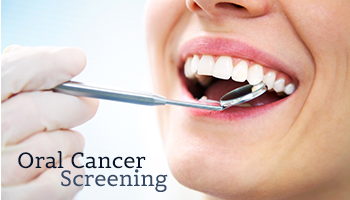
Oral health professionals and those affected by oral cancer work diligently to advocate for education and prevention; especially during April, as it is Oral Cancer Awareness Month. Although this month is especially important in educating individuals on what oral cancer looks like and the available preventative steps that can lower risk, to include scheduling your oral cancer screening; it’s vital that people monitor their oral health year-round.
Oral cancer can affect anyone, making it critical that you know what warning signs and symptoms point to the early stages of various types of oral cancer.
Oral Cancer: The Statistics
Did you know that over 9,000 women and 21,000 men in the United States receive an oral cancer diagnoses each year; that statistic is according to the National Cancer Institute.
According to the American Cancer Society’s most recent estimates for oral cancer diagnoses in 2019, just in the United States are:
- Approximately 53,000 people will get oral cancer
- An estimated 10,860 people will die from this disease
Oral cancer typically strikes in the mouth and throat beginning in the flat cells, or squamous cells, that cover the surfaces of the mouth, tongue and lips.
What Adds to the Risk Factors for Oral Cancer?
- Tobacco Use
- Heavy Alcohol Consumption
- Infection with the human papillomavirus (HPV)
- Sun Exposure
- Betel Nut Use
- Personal History of Oral Cancer
Here’s a side-note …
during my research for this blog, I had to ask,
“What is a Betel Nut?”
The information I discovered is disturbing:
Betel nuts are found across Asia, growing in palm trees. They’re used so widely, they’re one of the most popular mind-altering substances in the world. People chew on the nut and the leaf together to get high. Supposedly, it’s like a combination of tobacco and a lot of caffeine.
When they are chewed, the nuts give user a rush of stamina and euphoria. Excessive chewing causes discolored or even loss of teeth and oral cancer. Unfortunately, they’re not very difficult to purchase in the U.S. because they are not illegal or banned at this time.
Even though the betel nut is not a controlled substance, it can be illegal to import, especially wholesale. They can be dangerous, and the World Health Organization has labeled the betel nut as a carcinogen.
Symptoms of Oral Cancer?
Symptoms to watch for include:
- Patches inside the mouth or on the lips
- Sore on the mouth or lips that just doesn’t heal
- Bleeding in the mouth
- Loose teeth
- Pain or difficulty swallowing
- Lump in the neck
- Numbness of lower lip and chin
- Difficulty wearing dentures
- Persistent earache
Visit your dentist or physician immediately for an oral cancer screening if you have any of these symptoms.
The death rate associated with oral and oropharyngeal cancers remains particularly high because the cancers routinely are discovered late in their development. Fortunately, when oral and oropharyngeal cancers are detected (most commonly through an oral cancer screening) and treated early, mortality and treatment-related health problems are reduced.
What Can Be Done to Prevent Oral Cancer?
Your best bet in catching oral cancer during its early stages is with a regular oral cancer screening performed by a trusted oral health professional, like Dr. Gary Skrobanek and his expert team at GPS Dental in San Antonio. They have the knowledge and experience to identify potential symptoms of various types of oral cancer and can connect you with the medical services you need.
Related Article: Oral Cancer Screening – You Need to Know!
In addition to an oral cancer screening during each of your dental appointments from Dr. Skrobanek, you can complete self-directed oral inspections. Inspect your mouth monthly for the warning signs listed above. For a more complete and thorough inspection, you can use a small light and mirror to see otherwise blocked areas. Upon finding anything suspicious, immediately contact your oral health professional.
Related Article: Why We Perform Oral Cancer Screenings during Dental Checkups
Dentists and doctors alike will also recommend that people cut out tobacco use completely, as it is known to impact your overall health negatively. At GPS Dental, we’re dedicated to helping our patients maintain a healthy mouth and a healthy life. To schedule your oral cancer screening, contact us today.
Additional Resources:
- The National Cancer Institute has resources on oral cancer at www.cancer.gov/cancertopics/types/oral
- The American Dental Association’s consumer website, www.MouthHeathy.org , also features information about oral cancer
Dr. Gary P. Skrobanek is a dental implant dentist and his experienced, friendly team at GPS Dental offer affordable family dentistry and gentle dental care in the San Antonio, TX area. Our Brooks City Base dentist office is conveniently located and offers early morning appointment times Monday through Friday to meet your needs. At GPS Dental, we provide most dental services, from family and general dentistry to dental implants, sleep apnea, TMJ / TMD Treatment, cosmetic dentistry and much more. We accept most dental insurance plans and offer affordable financial solutions for any budget. Call us at (210) 633-3477 to make an appointment.
Oral Diseases and Tooth Loss… GPS Dental Can Help
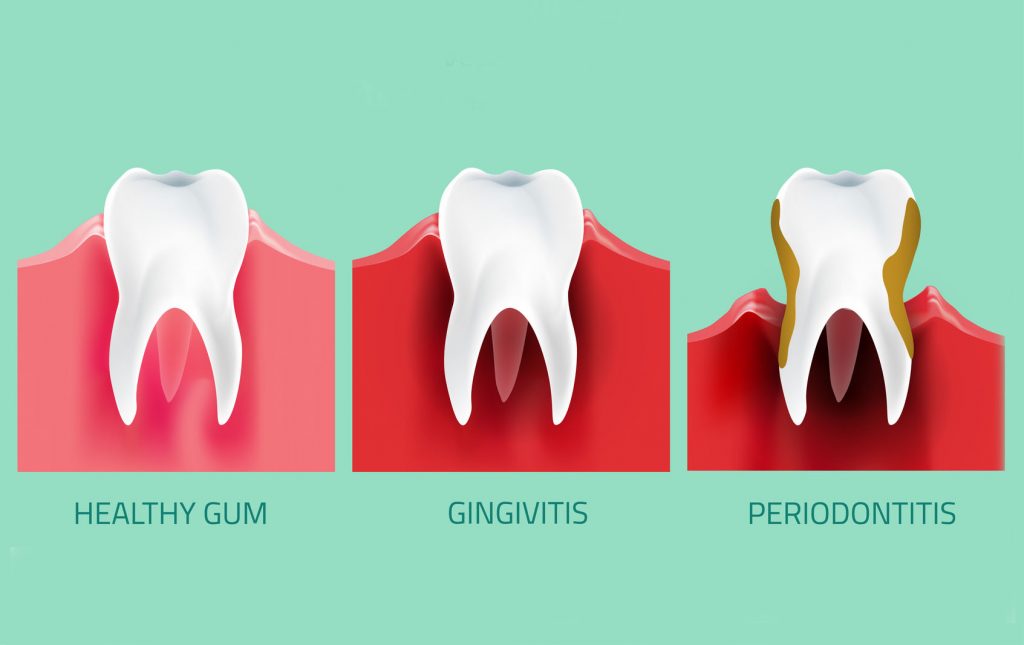
Not many individuals understand the importance of maintaining a healthy mouth. Daily brushing and flossing, as well as heading to the dentist regularly are essential habits to adopt. Ignoring these practices can lead to various oral diseases, commonly known as periodontal disease. It is imperative that people implement positive habits to prevent these issues from happening.
According to statistics, more than half of Texans aged 45 to 64 experienced tooth loss due to oral disease. It has also been proven that one out of every 7 adults in the U.S. aged 65 and older are missing all of their natural teeth. These issues highlight the importance of oral health, and individuals should commit to healthy oral habits to avoid tooth loss and other adverse effects.
What are Oral Diseases?
Dentists are always stressing to patients the importance of up keeping their oral health. Patients are often advised to brush their teeth every day and implement daily flossing. That is because the frequent consumption of food causes plaque to build up on teeth. Cleaning teeth thoroughly removes plaque, which left unchecked can produce acids that attack the teeth and gums.
Neglecting dental cleaning can cause deterioration, the development of gingivitis, and eventually, gum disease if not treated appropriately. Ultimately, the gums begin to recede, giving bacteria access to tooth roots and the ability to destroy exposed bone structures.
How Does Oral Disease Contribute to Tooth Loss?
As mentioned, gums begin to pull away from teeth, creating pockets that food and plaque can easily be trapped in. These pockets with wedged pieces of food can lead to infection. As the disease progresses, the bacteria eat away at the bone, causing a weak structure that results in the loss of teeth.
Related Articles:
Other Types of Dental and Oral Diseases
In addition to gingivitis, gum disease, and oral infections, other dental diseases can surface. These include cavities and oral cancer. Cavities generally occur when sugar and bacteria in the mouth create an acid that eats away at tooth enamel.
In adults, cavities occur due to bacteria getting caught around the perimeter of a filling. Root cavities also happen due to gum recession and the exposure of roots, which are susceptible to cavities and damage.
Oral cancer is also a common issue among adults. Heavy tobacco and alcohol use are some of the leading causes of this detrimental disease. Signs of oral cancer include difficulty swallowing, a white or red patch in the mouth, pain when moving the tongue or jaw, and more.
Related Article: Get Your Oral Cancer Screening
GPS Dental Can Help to Improve Your Oral Health
At GPS Dental, we encourage patients to adopt healthy oral habits. Our job as professionals is to guide the oral health of our patients. Therefore, professional checkups and cleanings, in addition to everyday habits, are essential to avoid oral diseases. Should you be looking for a team of dental professionals that are dedicated to your oral health, contact our office in San Antonio to book an appointment.
Related Article: Brooks City Base Dentist: GPS Spotlight on Gary Skrobanek, DDS
Dr. Gary P. Skrobanek’s experienced and friendly team at GPS Dental offers family dentistry for all ages in San Antonio, TX area. Our Brooks City Base dentist office is conveniently located and offers early morning appointment times Monday through Friday to meet your needs. At GPS Dental, we promote dental health awareness to our patients and provide most dental services, from family and general dentistry to dental implants, sleep apnea, TMJ / TMD Treatment, cosmetic dentistry and much more. We accept most dental insurance plans and offer affordable financial solutions for any budget. Call us at 210-633-3477 to make an appointment.
Tooth Extraction: Reasons for Pulling Teeth
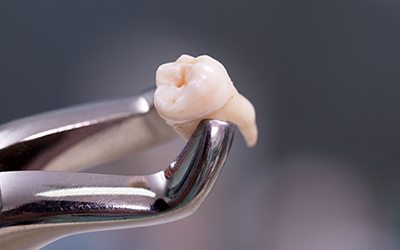
Teeth are very sturdy and the strongest parts of the human body. So, many people expect teeth to last a lifetime. However, some issues can arise and leave teeth susceptible to extensive damage.
Unfortunately, teeth are unable to repair themselves, so once the damage is done, you’ll need a corrective procedure, or in extreme situations, a tooth extraction.
Related Article: Tooth Extraction: Will my dentist pull my tooth?
Periodontal Disease
Periodontal disease, also called gum disease, is an oral ailment that affects the alveolar bone, teeth, gums, and other components of the mouth. This oral illness stems from poor oral hygiene and the inability to remove plaque, which is a sticky substance that collects on teeth.
As plaque bacteria remain on the teeth and harden over time, gums pull away from teeth and form deep pockets that collect bacteria. Without proper treatment, pockets continue to expand allowing bacteria to eat away at the teeth and jawbone. After a while, this condition advances to periodontal disease, which can cause teeth to loosen. At this stage, tooth extraction is likely.
The best defense against periodontal disease is adequate dental care at home and from an experienced dental professional. Dr. Skrobanek will do all that he can to minimize the effects of periodontal disease and potentially limit the need for tooth extraction. However, this is contingent on the severity of the disease.
Related Article: Dental Health Awareness: Gum Disease and Heart Disease
Impacted & Overcrowded Teeth
Impacted teeth are unable to break through the gums because of an obstruction. This situation generally affects wisdom teeth. Impacted teeth can be seen with an X-ray, and patients may experience persistent swelling and pain originating from the area where wisdom teeth develop. Surgical removal is often necessary to eliminate discomfort and consequences of impacted teeth.
Overcrowded teeth overlap or are jammed together. These teeth limit movement or the ability for teeth to realign when orthodontic treatment is sought. Therefore, extraction is needed to provide adequate space in order to straighten teeth later. Crowded teeth can also lead to decay as they are difficult to clean sufficiently.
Severely Decayed Teeth
Cracked and chipped teeth are the most susceptible to tooth decay, as bacteria can infiltrate teeth and lead to severe deterioration. For that reason, many clients are encouraged to repair teeth at the first sign of a fracture.
When a tooth becomes diseased, and the pulp is infected, a tooth extraction or root canal procedure is needed to treat the infection. The type of treatment is based on the severity of the disease.
At GPS Dental, we offer an array of treatments and solutions for our patients. Dr. Skrobanek is committed to helping patients maintain the health of their teeth and gums. He employs the most suitable procedure for the condition before him. A tooth extraction is only chosen when it is necessary and other treatments have proven unsuccessful. To learn more about tooth extractions and other dental procedures we have available, contact us.
Related Article: What are Your Tooth Replacement Options?
Dr. Gary P. Skrobanek’s experienced and friendly team at GPS Dental offers family dentistry for all ages in San Antonio, TX area. Our Brooks City Base dentist office is conveniently located and offers early morning appointment times Monday through Friday to meet your needs. At GPS Dental, we promote dental health awareness to our patients and provide most dental services, from family and general dentistry to dental implants, sleep apnea, TMJ / TMD Treatment, cosmetic dentistry and much more. We accept most dental insurance plans and offer affordable financial solutions for any budget. Call us at 210-633-3477 to make an appointment.
Dental Health for Kids: Brushing, Avoiding Cavities & More

As a parent, it’s difficult to know how much dental care our kiddos need. We know we want to prevent cavities, but don’t always know the best way to do so. Here are commonly asked questions and guidelines to help you lay the foundation on the dental health for kids topic to keep those little pearly whites sparkling.
When Should My Kids Start Brushing Their Teeth?
Dental health for kids begins before your baby’s first tooth appears. Just because you can’t see that first tooth, doesn’t mean it’s not there. Teeth begin to form during the second trimester of your pregnancy. When your baby is born, he has 20 primary teeth, some are fully developed, in the jaw.
Caring for those little chompers:
- Before your baby starts teething, clear away any harmful bacteria by running a damp, clean washcloth over the gums.
- Once that first tooth comes through, brush it with an infant toothbrush. Use water and a very small amount of fluoride toothpaste (about the size of a grain of rice). Make sure to use fluoride toothpaste that carries the ADA (American Dental Association) seal of acceptance.
- You can begin flossing, once your baby’s teeth touch.
- Teach your child how to spit while brushing around the age of 2. Avoid giving him water to swish and spit, since it might make swallowing toothpaste more likely.
- Kiddos should only use a pea-sized amount of fluoride toothpaste, starting at 3 years old.
- Children younger than 8 are more likely to swallow toothpaste, so make it a habit to always supervise them while brushing.
Even babies can develop tooth decay. Here are some feeding tips to avoid:
- Avoid putting a baby to sleep with a bottle. The sugars from juice or milk can harm their teeth, as they remain on a baby’s teeth for hours, eating away at the enamel. This can create a condition known as bottle mouth. Pitted or discolored front teeth are common signs of bottle mouth.
- Sucking on a bottle throughout the day can be just as damaging to young teeth.
- As young as 6 months, babies are encouraged to switch from a bottle to a sippy cup (with a hard spout or straw).
- At 12 months, they’ll have the coordination and motor skills to use the cup on their own.
Related Article: If You Sip & Snack All Day, You’ll Risk Tooth Decay
When Should Kids See a Dentist?
“Happy Birthday to You!!” The ADA recommends that little ones see a dentist by their first birthday. (Yep, dental health for kids starts early!) During this first visit, your dentist will explain proper brushing and flossing techniques and do a modified exam while your baby sits on your lap.
These visits can help find problems early and help kids get used to visiting your dentist, so they’ll have less fear about dental visits as they get older.
If your child seems to be at risk for cavities or other problems, the dentist may start applying topical fluoride even before all teeth come in (this also can be done in the pediatrician’s office). Fluoride hardens the tooth enamel, helping to ward off the most common childhood oral disease — dental cavities.
Dental Health for Kids: How Can We Prevent Cavities?
Cavities happen when bacteria and food left on the teeth after eating are not brushed away. Acid collects on a tooth, softening its enamel until a hole — or cavity — forms.
Here’s how to keep cavities away:
- Oral habits start early. Teach your kids to brush at least twice a day (with fluoride toothpaste) and to floss regularly.
- Avoid certain foods or limit them. Sugary foods, including juices and candy (especially gummy sticky candy, fruit “roll-ups” or gummy vitamins). They can erode enamel and cause cavities. If your kiddos eat these foods, have them brush their teeth or rinse their mouth after eating to wash away the sugar and bacteria.
- As your child’s permanent teeth grow in, your dentist can help prevent decay by applying a thin layer of sealant to the back teeth. This is where most chewing is done, and this protective coating keeps bacteria from settling into the crevices of the molars that are difficult to reach.
Dental Health for Kids: What Dental Problems Can Happen?
- Your kids might be at higher risk for tooth decay or gum disease if it’s something you deal with too. Truth be told, sometimes even the best brushing and flossing habits can’t prevent a cavity.
- Call your dentist if your child complains of tooth pain, it could be a sign of a cavity that needs treatment.
- Good dental hygiene and regular checkups can keep your dental health for kids in check.
- Avoid serious dental injuries by encouraging your kids to use a mouthguard during sports; accidents can happen and it’s always better to be safe than sorry.
Related Article: What to look for in a family dentist in San Antonio, TX
Dental Health for Kids: As They Grow
As our littles grow, schedule routine dental checkups at GPS Dental, typically twice a year. Don’t forget to limit sugary foods, encourage regular brushing and flossing, and work with your Dr. Skrobanek and his expert team. These simple dental health for kids tips will help your littles form healthy habits and continue a lifetime of healthy smiles.
Dr. Gary P. Skrobanek’s experienced and friendly team at GPS Dental offers family dentistry for all ages in San Antonio, TX area. Our Brooks City Base dentist office is conveniently located and offers early morning appointment times Monday through Friday to meet your needs. At GPS Dental, we promote dental health awareness to our patients and provide most dental services, from family and general dentistry to dental implants, sleep apnea, TMJ / TMD Treatment, cosmetic dentistry and much more. We accept most dental insurance plans and offer affordable financial solutions for any budget. Call us at 210-633-3477 to make an appointment.
Holiday Treats – If You Sip & Snack All Day, You’ll Risk Tooth Decay!

During the holiday season, everyone finds pleasure in being among family and friends. It is a time to be jolly and engage in the holiday’s festivities. This celebratory period is marked by treats, festive drinks, and a vast array of foods.
Almost everyone finds it hard to ignore the sweets and delicious foods that are displayed for all to enjoy. As individuals socialize, snacking and sipping is inevitable. You don’t have to stop the impulse to snack entirely but be aware of how eating and drinking frequently can have a harmful impact on your oral health.
Tooth Decay: Sweet Treats
Sweets are practically a necessity for the holiday season. Chocolates, brownies, fudge, candy canes, cookies, cakes, fruit cake, and figgy pudding are just some of the treats that people expect to see on their tables. They are delicious, and they are staples of this joyous time. However, indulging can be horrible on the teeth because sugar creates a breeding ground for bacteria in the mouth.
The high sugar content found in these foods provides sustenance for oral bacteria. As bacteria and sugar react, they produce acids that attack the teeth. As these sugars remain on your teeth and are steadily introduced to your mouth throughout the day, you leave your teeth and gums vulnerable to decay.
Related Article: Dental Health Awareness: Gum Disease & Heart Disease
Tooth Decay: Sugary Drinks
Hot cocoa with various toppings, fruit punches, cocktails, wine, and other festive drinks all contain sugar. As these are consumed with other sweet substances, they accelerate the process that causes tooth decay. They cling to teeth and the acid produced through the interaction with bacteria, strip away enamel. When this layer of protection is penetrated, teeth become weak and susceptible to cavities.
Alcohol is known for its unpleasant effect on the body. Its sugar content coupled with its dehydrating properties, make alcohol risky for your oral health. As alcohol is consumed, it clings to the teeth, feeding existing bacteria. It also causes dehydration by slowing down the production of saliva and inhibiting its ability to flush away bacteria and food or drink particles, causing them to linger in the mouth. Staining also results from alcohol consumption.
What Can I Do to Avoid the Negative Effects of Alcohol and Sugar on My Oral Health?
Sweets can be consumed during the holiday season, but adopting specific habits can help to counteract the effects of holiday treats on teeth. For instance, rinsing your mouth between indulgences, as well as using mini toothbrushes to clear away foods from teeth can be very beneficial. Drink water between alcoholic drinks to prevent dry mouth (and stay hydrated), wash away bacteria and restore moisture. Last but not least, brushing teeth twice a day, flossing, and using mouthwash should be implemented to guarantee the removal of food and sugars, which can cause plaque build-up and tooth decay.
GPS Dental Offers Holiday Cleanings
At GPS Dental, we understand that sweets are some of the traditional items that many expect to see and eat during the holiday season. However, eating them in moderation or adopting practices that aid in neutralizing the effects of sugar are strongly recommended.
After the holiday season has passed, we encourage you to come in for a check-up and cleaning. We can work with you to ensure that no adverse changes have occurred in your mouth, impacting your oral health. Contact the office of GPS Dental to book an appointment.
Dr. Gary P. Skrobanek’s experienced and friendly team at GPS Dental offers family dentistry for all ages in San Antonio, TX area. Our Brooks City Base dentist office is conveniently located and offers early morning appointment times Monday through Friday to meet your needs. At GPS Dental, we promote dental health awareness to our patients and provide most dental services, from family and general dentistry to dental implants, sleep apnea, TMJ / TMD Treatment, cosmetic dentistry and much more. We accept most dental insurance plans and offer affordable financial solutions for any budget. Call us at 210-633-3477 to make an appointment.
Top 10 Causes of Sensitive Teeth
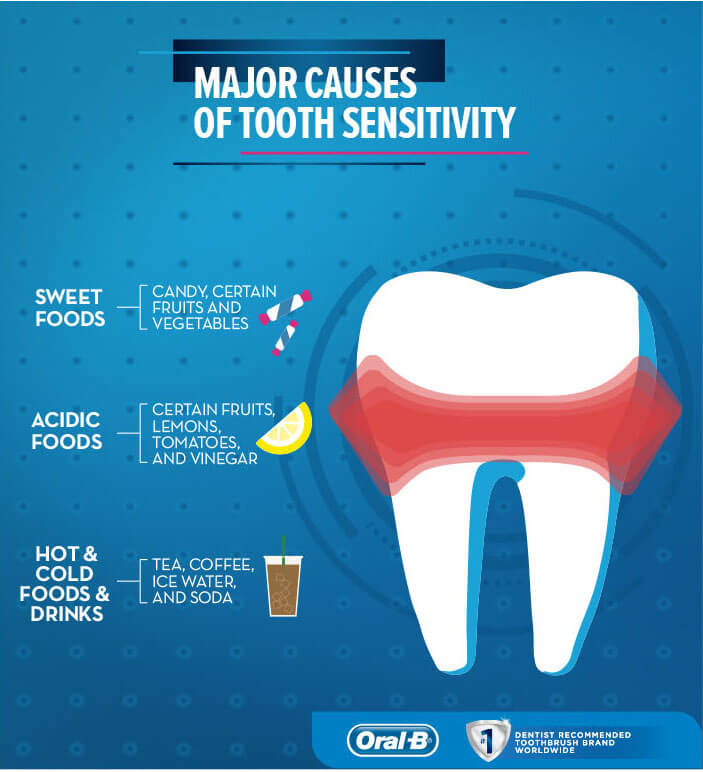
Many individuals suffer symptoms of sensitive teeth which typically consist of discomfort or pain while eating, drinking, and breathing. Causes of sensitive teeth can vary from deteriorated tooth enamel to unprotected tooth roots.
If you are suffering from sensitive teeth and wondering how you can prevent this condition, continue reading for the 10 common causes of sensitive teeth as well as suggestions on how to avoid or diminish sensitive teeth.
-
Brushing Too Aggressively
Keeping your teeth clean and free of plaque is fundamental to your oral health. However, using a hard bristle brush or brushing teeth harshly can wear down the enamel and be one of the top causes of sensitive teeth. Once this protective coating is damaged or worn down entirely, the dentin underneath is exposed. This tissue inside the tooth is highly sensitive to stimuli. Using a softer bristle brush and brushing less vigorously is your best course.
-
Chipped or Cracked Teeth
If you have a chipped or cracked tooth and notice pain resonating from that particular tooth, this is a severe condition and one of the top causes of sensitive teeth. The discomfort experienced is most likely resulting from plaque and food debris seeping into your teeth, accessing the pulp, and causing an infection. Extraction, a root canal, or another dental procedure will have to be done to treat the infection and thereby alleviate the pain.
Related Article: Chipped Tooth? 3 Ways to Make it Look Like New
-
Cavity
In some instances, a cavity causes sensitive teeth. Much like cracks or chips in a tooth, a cavity also provides an opening to deep layers of the tooth. Poor oral hygiene and regular consumption of sugary foods and drinks will lead to sensitive teeth.
-
Worn Filling
The purpose of a filling is to repair cavities and openings in the teeth. However, over time, these fillings can wear down. As they do, an entrance to the tooth is once again revealed. Relieve sensitive teeth from this cause with a secure filling.
-
Teeth Grinding (TMJ)
People who grind their teeth will wear them down, resulting in extreme discomfort and causes tooth sensitivity. Ask your dentist about bruxism. A mouthguard might be suggested for your sensitive teeth.
Related Article: Are You Experiencing Jaw Pain? You could have TMJ!
-
Acidic Foods or Drinks
A typical cause of sensitive teeth is the persistent consumption of acidic foods or drinks. The chemicals contained in these items attack the enamel of the teeth causing it to wear down and lose its strength. Decreasing the consumption of these items (such as wine, soda, coffee, and some fruits) can reduce tooth sensitivity.
-
Gum Disease
Gum disease results from poor oral hygiene habits. With severe plaque build-up, bacteria can collect heavily on the gums. It causes sore and bleeding gums and discomfort while chewing. More severely, it can attack the bone of the teeth often resulting in deterioration, pain, and eventually tooth loss.
Related Article: Dental Health Awareness: Gum Disease & Heart Disease
-
Excessive Plaque
Gingivitis is the preceding stage of gum disease and occurs when plaque builds up on the teeth and along the gum line. It causes red, swollen, tender gums. If left untreated, gingivitis leads to gum recession, that will expose the root of the teeth. This state of vulnerability leads to very sensitive teeth.
Related Article: Bad Teeth? You May Need Perio Treatment
-
Extreme Use of Mouthwash
Using mouthwash is a good addition to your routine of flossing and brushing. However, when used in excess, it can rank on the list of causes of sensitive teeth. Some mouthwashes contain alcohol, which can wear down the enamel. Consider using a milder mouthwash, without alcohol to limit enamel erosion.
-
Dental Procedures
Dental procedures are often performed to correct an existing issue. However, they may result in sensitive teeth immediately afterward. This discomfort should only last a short period. If you notice the pain continues after the estimated recovery period, contact your dentist about your sensitive teeth.
GPS Dental Can Help with Sensitive Teeth
If you have sensitive teeth, visit GPS Dental. Our dental professionals can identify the underlying causes of your tooth pain. For more information on our services, how we can help you, or to book your next appointment, contact us.
Dr. Gary P. Skrobanek’s experienced and friendly team at GPS Dental offers family dentistry for all ages in San Antonio, TX area. Our Brooks City Base dentist office is conveniently located and offers early morning appointment times Monday through Friday to meet your needs. At GPS Dental, we promote dental health awareness to our patients and provide most dental services, from family and general dentistry to dental implants, sleep apnea, TMJ / TMD Treatment, cosmetic dentistry and much more. We accept most dental insurance plans and offer affordable financial solutions for any budget. Call us at 210-633-3477 to make an appointment.
5 Common Reasons You Have Tooth Pain after Root Canal

A root canal is a common procedure that dentists perform to treat certain types of tooth pain. During the procedure, the dentist will carefully remove dead, infected, and damaged pulp from the inside of the affected tooth (developed teeth can survive without the pulp), thereby eliminating the source of the pain.
Although this procedure is highly effective for treating pain, sometimes patients still experience tooth pain after root canal, and today we’ll tell you five of the most common reasons why.
-
Tooth Pain After Root Canal: Post-Procedure Inflammation
One of the most common causes of post-root canal tooth pain is inflammation, which can be caused by the procedure itself or because the infection caused the tooth ligament to become swollen. In these cases, the swelling will subside in the days and weeks following the root canal, and the pain will resolve on its own.
-
Tooth Pain After Root Canal: Infection
A root canal is often performed to remove infected pulp from inside the tooth, so it’s possible that there’s still some bacteria present after the procedure, and this can lead to infected tissue and more pain. Like with swelling, the problem should resolve itself once your immune system attacks and kills the bacteria, but if the problem persists, your doctor or dentist may recommend antibiotics.
-
Tooth Pain After Root Canal: Fillings That Are Too Large
After your dentist removes the pulp from inside your tooth, the empty space is filled with a rubber-like material. If too much filling material is used, however, it will cause the tooth to sit higher, and this will cause pain any time you bite down. Although this problem won’t resolve on its own, your dentist can fix the issue easily by adjusting the filling.
-
Tooth Pain After Root Canal: An Incomplete Root Canal
Some teeth, especially the molars, can have multiple canals, and it’s possible for a dentist to miss one or more of these during the procedure. In these instances, the initial cause of the pain never gets fixed, so you’ll still experience pain even after the root canal. Similarly, if the dentist happens to miss any of the damaged nerves inside the tooth that need to be removed, you may still experience pain when that tooth comes in contact with heat, cold, or something acidic.
-
Tooth Pain After Root Canal: Damage to the Surrounding Tissue
During the root canal, tissue damage can occur if bacteria is accidentally injected into the surrounding tissue, if too much filling material is used and flows past the root tip, or if a file used to clean the inside of the tooth slips beyond the root tip and pokes into the tissue below. In these cases, the pain will disappear when the damaged tissue heals.
Root canals are an effective method for addressing problems caused by damaged or infected pulp, and this procedure is usually effective at eliminating tooth pain. However, if your tooth pain persists after the root canal, these are common issues that might explain the problem. In most cases, the tooth pain will resolve on its own, but if the pain is excessive or continues for more than five days, consult a dental professional as soon as possible.
Related Article: Brooks City Base Dentist: GPS Spotlight on Dr. Gary Skrobanek
Dr. Gary P. Skrobanek’s experienced and friendly team at GPS Dental offers family dentistry for all ages in San Antonio, TX area. Our Brooks City Base dentist office is conveniently located and offers early morning appointment times Monday through Friday to meet your needs. At GPS Dental, we promote dental health awareness to our patients and provide most dental services, from family and general dentistry to dental implants, sleep apnea, TMJ / TMD Treatment, cosmetic dentistry and much more. We accept most dental insurance plans and offer affordable financial solutions for any budget. Call us at (210) 633-3477 to make an appointment.
My Teeth Are Sensitive: Why and What You Can Do About It
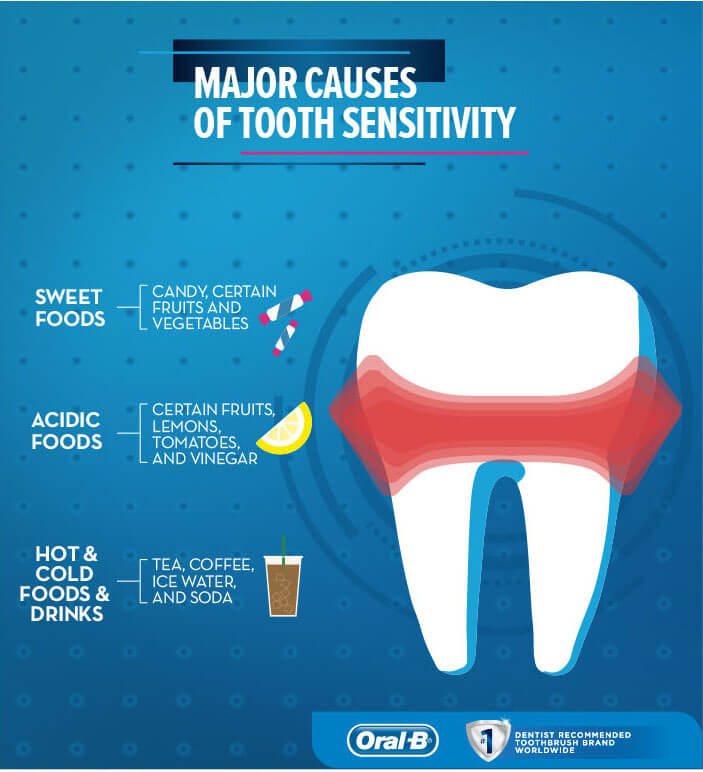
Having sensitive teeth can make eating and drinking more of a chore than something to enjoy, and unfortunately, millions of Americans suffer from pain caused by sensitive teeth. If you’re one of them, then it’s important to pay attention to what foods trigger the pain so that you can take care when consuming your favorite foods and drinks with them. However, it’s even more important to understand why my teeth are sensitive so you can take steps to reduce it.
My Teeth Are Sensitive: Substances and Activities That Trigger Tooth Pain
Tooth sensitivity is different for everybody, but certain things commonly trigger this type of pain, and they include:
- Consuming acidic foods or beverages
- Exposure to cold temperatures (including foods, drinks, and even the air)
- Eating hot foods and drinks
- Brushing too hard
- Flossing your teeth
My Teeth Are Sensitive: Why Teeth Become Sensitive
The reason some people have tooth sensitivity is something called dentin, which is one of the primary substances that make up human teeth. In a healthy tooth, the nerves of the tooth are protected from things like hot, cold, and acid by dentin, which is in turn protected by enamel. But when the enamel wears away, it can expose the dentin below, leaving the nerves susceptible to temperature and other elements. When the nerves are exposed to these things, it triggers pain in your teeth and mouth.
My Teeth Are Sensitive: Factors That Can Exacerbate Sensitivity
Many activities and substances can actually make tooth pain worse, including anything that will wear away the enamel on your teeth or expose the roots of your teeth.
These things include:
- brushing too hard
- using a hard-bristled toothbrush
- gingivitis
- receding gums
- grinding your teeth or clenching your jaw
- eating acidic foods or beverages too often (this can include mouthwash and whitening toothpaste)
Other factors that can worsen tooth sensitivity include having:
- cracked teeth
- excessive plaque build-up
- tooth decay
Great, My Teeth Are Sensitive. So What Can I Do About It?
There’s good news for people who are suffering from sensitive teeth: there are treatments that can reduce the pain you experience when you eat and drink. You can mitigate the pain by brushing your teeth with a soft-bristled brush, using desensitizing toothpaste, rinsing your mouth daily with an alcohol-free fluoridated mouthwash, avoiding acidic foods and beverages, and using a straw to consume cold or acidic substances.
Finally, it’s also a great idea to schedule an appointment with Dr. Gary Skrobanek at GPS Dental in San Antonio because he may be able to suggest dental procedures or solutions that may further reduce pain, including crowns, bonding, root canals, fixing cracks, or even a custom mouthguard to protect your teeth and enamel from nighttime grinding.
Related Article: Signs of Sleep Apnea: The Bedtime Battle
Sensitive teeth can make life a pain and turn every meal into a minefield of figuring out where to chew comfortably; you might even be avoiding certain foods and doing what you can to prevent pain. Fortunately, there are things you can do to reduce pain caused by tooth sensitivity. Along with proper oral hygiene habits and avoiding certain substances, you can also talk to Dr. Skrobanek about what procedures might help make your teeth less sensitive.
More about Dr. Gary Skrobanek, DDS: Brooks City Base Dentist: GPS Spotlight on Dr. Gary Skrobanek
Dr. Gary P. Skrobanek’s experienced and friendly team at GPS Dental offers family dentistry for all ages in San Antonio, TX area. Our Brooks City Base dentist office is conveniently located and offers early morning appointment times Monday through Friday to meet your needs. At GPS Dental, we promote dental health awareness to our patients and provide most dental services, from family and general dentistry to dental implants, sleep apnea, TMJ / TMD Treatment, cosmetic dentistry and much more. We accept most dental insurance plans and offer affordable financial solutions for any budget. Call us at (210) 633-3477 to make an appointment.
Dental Health Awareness: Gum Disease & Heart Disease
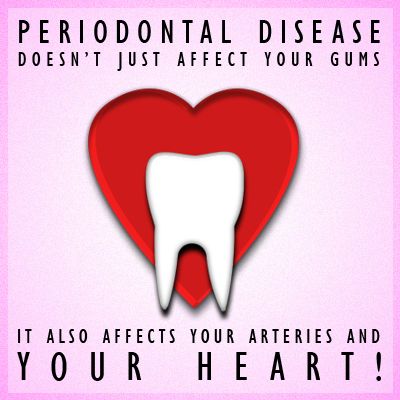
Periodontal Disease is a Pre-Cursor to Heart Disease
Every now and again, you’ll have a heart-in-mouth moment that leaves you speechless or struggling to find the right words to say. Once you learn how much your heart health works in conjunction with your oral hygiene, you’ll have one less thing to worry about. As innocuous as it seems, how you maintain your teeth affects your most vital organs. Gum disease of any kind can lead to heart problems if you don’t address it right away.
Dental Health Awareness: How Are They Connected?
Periodontal disease is a type of infection in and around your teeth structure that can affect your gums and tissues.
If you have this disease, you are more likely to be at risk of suffering a heart attack, in fact, you are two to three times more likely to experience one, according to Harvard University. Why? Any inflammation or swelling caused by periodontal disease can lead to hardened arteries. Consequently, the blood flow to your heart is slowed. Your gums are full of blood vessels. Once bacteria infects those gums, your bloodstream is likelier to be affected by the bacteria, which can cause inflammation throughout your body. The presence of additional toxins can affect your heart, leading to heart disease or even a stroke.
Related Articles:
How are Diabetes and Oral Health Related?
Show Your Teeth Some Love: Gum Disease & Your Heart
Dental Health Awareness: How Do You Get Periodontal Disease?
Periodontal disease can derive from several internal bodily issues, but also poor lifestyle choices. Practices influencing the development of this disease are not brushing or flossing your teeth enough, bad eating habits, and lack of exercise. If you are a frequent smoker or have diabetes, you’re also prone to periodontal disease, which, in turn, makes you a higher risk for heart problems.
Gingivitis, which involves the swelling and bleeding of gums, is the most notable precursor to periodontal disease. ‘Peri’ means around and ‘odontal’ refers to teeth. So if immediate action is not taken, the structure that surrounds your teeth within your jawbone weakens. At some point, your teeth may loosen, leading to potential extraction.
The bacteria in dental plaque is a primary cause of this disease. Having superior dental health awareness and scheduling regular check-ups will help you eliminate that plaque as soon as possible to reduce any chances of contracting the disease.
Dental Health Awareness: Can Preventing Periodontal Disease Eliminate Heart Disease?
There’s no definitive proof that limiting or eliminating periodontal disease has a direct effect on preventing heart disease. However, it can diminish any risk of getting it.
Routine brushing and flossing help your teeth stay in excellent condition. If you do have gingivitis or signs of it, you should seek attention from your dentist, and it helps to ask for a demonstration on how to brush and floss properly. It could also be beneficial to get as many cleanings as required by Dr. Skrobanek at GPS Dental.
Improved lifestyle habits as well as fixing any misaligned or crowded teeth can reduce your chances of getting this debilitating oral disease. Stress and fluctuating hormones are also possible triggers that you need to note if you want to curb this disease from happening or spreading.
Strong dental health awareness and paying attention to your overall health can ensure that your mouth and heart are as healthy as possible. Let GPS Dental direct your path towards exemplary oral hygiene and find out how you can prevent or eliminate periodontal disease now.
Dr. Gary P. Skrobanek’s experienced, friendly team at GPS Dental offers affordable dentistry and is a gentle family dentist in San Antonio, TX area. Our Brooks City Base dentist office is conveniently located and offers early morning appointment times Monday through Friday to meet your needs. At GPS Dental, we promote dental health awareness to our patients and provide most dental services, from family and general dentistry to dental implants, sleep apnea, TMJ / TMD Treatment, cosmetic dentistry and much more. We accept most dental insurance plans and offer affordable financial solutions for any budget. Call us at (210) 633-3477 to make an appointment.







